This post has not been edited by the GamesBeat staff. Opinions by GamesBeat community writers do not necessarily reflect those of the staff.
In the remote location known as Katorga-12, scientists have discovered the January 2012 issue of Gamepro magazine, a publication that, as we know it, ceased all operations with the November 2011 issue. Though badly singed, and missing many of its pages, a few interesting tidbits were recoverable and at least three full articles are completely intact.
Despite threats from unnamed government agencies, and risk of space-time continuum disruption, this author has decided to release one such article to the public. It is an interview with a man named Jerry Lambert, who, in our reality, portrays Kevin Butler–a fictional executive in a series of Sony advertising campaigns. After a glimpse at this "Alternate-Sony," this author believes real-world Sony might benefit from a few tenets Mr. Lambert preaches.
Sony 2012 – Looking Back while Moving Forward
a Candid Interview with Jerry Lambert, President and CEO of SCEA
By Dan "Sock" Hsak
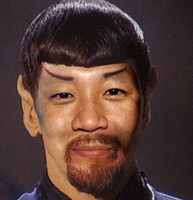 The past informs the future. This axiom comes to me on the short drive from San Francisco to Foster City, as I become lost in contemplation of recent history. The last few years have been momentous not only in my own personal history, but in the history of the industry I have built a career around covering. Since taking the reigns of the Gamepro Media Network from John Davison in late 2010, the staff and I have managed to take a storied game magazine and successfully create a network of sites and coverage outlets that stands tall. Thanks to the tireless writers and editors here, the chorus of editorial voices joining us from Bitmob, and John's focus on the culture and people the games industry touches, we have arrived at creating something unique.
The past informs the future. This axiom comes to me on the short drive from San Francisco to Foster City, as I become lost in contemplation of recent history. The last few years have been momentous not only in my own personal history, but in the history of the industry I have built a career around covering. Since taking the reigns of the Gamepro Media Network from John Davison in late 2010, the staff and I have managed to take a storied game magazine and successfully create a network of sites and coverage outlets that stands tall. Thanks to the tireless writers and editors here, the chorus of editorial voices joining us from Bitmob, and John's focus on the culture and people the games industry touches, we have arrived at creating something unique.
Is it this unique nature that has landed me the rare interview to which I am driving, already beginning to feel slightly nervous? After all, it isn't every day here at Gamepro that we get to talk candidly with one of the founding fathers of the Playstation brand. Jerry Lambert is the President and Chief Executive Officer of Sony Computer Entertainment America. Since joining Sony in 1995, Lambert has been involved in the strategy, design, and development of every console and handheld that has borne that name. As you'll see below, he takes an almost personal ownership of the hardships and failures, as well as the successes, Sony has experienced with the brand. Some may insist that games is a technology industry, but Jerry soon points out that, like all industries, it is a people industry. This is surprising for me to hear, because although he is enthusiastic and bombastic, Lambert rarely grants direct interviews, preferring to address his fans and detractors en masse from the stage at E3, something he has done since 2007.
At the conclusion of our meeting, driving back to the office filled with people who already feel like my family, I am left with the impression that if I can keep my focus on the people to whom we are providing a service, on giving them the future of game coverage while honoring the spirit of what Gamepro has been in the past, that this twenty-three year old brand name of Gamepro might just see the ripe old age of thirty!

Gamepro: You're just a month away from the launch of the Vita in North America. Are you confident in the success of the platform?
Lambert: I'm confident in the quality of the platform, [and] the quality of the games and apps we're releasing for it. It's a fantastic piece of hardware, easily the best portable gaming platform that's ever been developed. I know I will be perceived as being biased, but I wouldn't say it if I didn't truly believe it.
Gamepro: What are your feelings about the Japanese Vita launch?
Lambert: Things are going very well in Japan. Selling half your initial shipment in the first week is always a good sign. Reviews and consumer opinion both have been encouragingly solid. Although sell-through slowed a bit since launch, we are encouraged to have Playstation Vita outselling the original PSP in the weeks since. Having the PSP Too add-on available at launch is a big part of that success. It doesn't hurt to offer Japanese customers the ability to transfer their Monster Hunter saves directly over to the Vita and continue their favorite game right where they left off, on a sexy new piece of hardware. That said, we expect further success as more Vita exclusive titles reach the pipeline post-launch. Wipeout, Uncharted, and Gravity Rush come to mind as launch window titles I expect to really wow the American audience.
Gamepro: Releasing the PSP Too is a bit of an unusual approach. The last time a peripheral was released to give a system compatibility with a previous console was the Gameboy Player. This is the first time a peripheral as well as a per-title emulator package purchase is required for backwards compatibility. What do you say to critics who would accuse you of charging for the emulator packages needlessly?
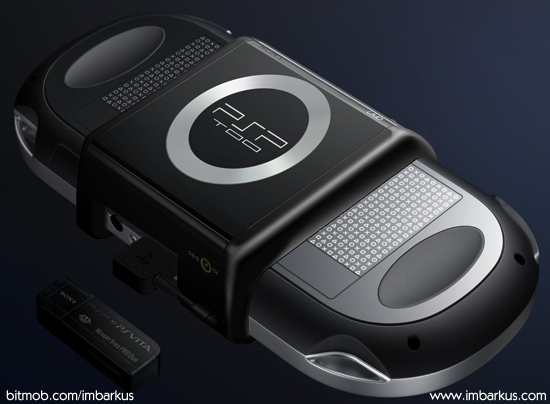
Lambert: I would say they don't know what they're talking about. It was obvious that if we were to offer Vita users backward compatibility we would need to create a UMD drive peripheral. At least in America, that's been perfectly clear to us since we decided to go with a proprietary media format for Vita, with DCRCA in effect. But the PSP itself was much more than just a UMD drive. As with the Playstation 2, many developers ended up overcoming limitations of the PSP, loading times for example, with unique software tricks like the streaming of textures and levels, [and] other techniques, that just can't be handled with a one-size-fits-all emulator. But let's be clear, this is not a per-title charge. The Playstation 2 emulator package sales model we have developed for the slim model Playstation 3 is the exact same as what you will see on Vita. The difference is that Vita doesn't come with a UMD drive, and so [you have to] purchase that hardware separately.
Gamepro: Vita also doesn't come with a Memory Stick DUO port.
Lambert: Yes. Exactly. That's exactly right. And players bought the Playstation 2 memory card adaptor for PS3 if they wanted to bring over their old saves. There's no difference.
Gamepro: Why didn't you use Memory Stick DUO as the removable memory format for Vita?
Lambert: It's clear we couldn't do that. I'll just say it up front, it's common knowledge. An open format for storage on PSP is what brought us unending piracy issues on the platform. As a platform holder we are committed to our software partners to secure the environment as much as possible and protect their investment in us.
Gamepro: The Memory Stick adaptor included with PSP Too won't cause the same problems?
Lambert: Our engineers have ensured us there are plenty of roadblocks and safeguards in place to prevent that. They're great, devoted, intelligent people. They've done their best job preventing piracy, and I trust that they've done it to the best of their ability. Obviously, those who are determined to pirate software will find a way to circumvent any safeguards we put into place. But there is a big difference between an open, common storage format integrated into a piece of hardware, and the same storage format that can only be connecting through a proprietary peripheral through a proprietary connection. We can at least prevent piracy from being something any one can do with a small amount of research on the internet.
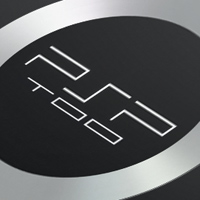 Gamepro: So the adaptor will be bundled with the PSP Too in North America, too? Are you selling it separately?
Gamepro: So the adaptor will be bundled with the PSP Too in North America, too? Are you selling it separately?
Lambert: It will be bundled. The PSP Too will be available at launch in North America at $99.99 suggested retail. We have no plans to sell the Memory Stick DUO adaptor separately right now.
Gamepro: That's a significant amount to pay for a portable peripheral that enables backwards compatibility. Particularly with the Gameboy Cubed doing so well in the market, equipped with backwards compatibility out of the box. To a customer, add in the charges for the memory cards with additional charges for the em-packs, and it looks like a lot to pay in comparison to the competition.
Lambert: Granted, certainly. Even though Vita is doing software emulation of the PSP processor, there's the UMD drive, the battery, [and] as you mentioned the Memory Stick adaptor. There's a lot in that package. PSP Too is a considerable bit of hardware. I'm told it's quite an engineering and programming accomplishment, considering what we are asking it to do. Certainly it's a lot more than it takes to emulate old Gameboy software. Even at what we're charging, we're not making any money on sales of PSP Too.
Gamepro: And the em-packs?
Lambert: Our pricing on the em-packs is very fair. After all, the initial software emulation package, the engine of it, is bundled with the PSP Too. For many titles, this base emulator package is all that's needed to play PSP games flawlessly. Beyond that, we have the same model for PSP-to-Vita em-packs as we do with PS2-to-PS3. If a certain em-pack, purchased for a particular title, includes all of the instructions necessary to emulate another PSP title, the customer does not have to pay anything more. Not only is it compliant with DCRCA, but it's the right thing to do. One charge for one unique, assembled instruction set of emulator software. An emulation pack that covers multiple games can cost up to three dollars, whereas any packages required by the unique needs of a single title will usually run one dollar. This is the same price model customers are paying now on PS3 for em-packs, a price model that was introduced four years ago, that hasn't increased one cent since then.
Gamepro: Are there any plans to release a SKU with this hardware and onboard emulation as part of the original unit, a PSVita Plus?
Lambert: Not for Vita, no. The PS3 Plus was derived from the original model of the PS3 that we released. When that model was originally designed they included the Emotion Engine processor and the GPU from the PS2 to provide full backwards compatibility through onboard hardware. We needed to release a SKU at a lower cost to remain competitive, we weren't catching up on market share, and so we released the redesigned PS3 at $299 suggested retail and the original design became PS3 Plus, our $499 high-end SKU. With Vita, there was never a plan to include full hardware compatibility, the plan was always software emulation. Once that decision was made, it made no sense to include a separate SKU with a UMD drive and an additional memory port, in terms of the weight and power drain it would add to the unit, in terms of the price it would add to the unit, and in terms of the number of SKUs we are offering. We have a 3G model and a Wi-Fi model already. Two SKUs is enough for any platform.
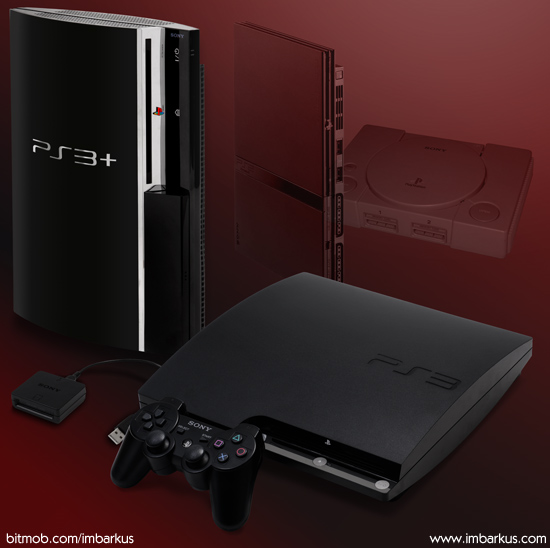
I feel that we offer our customers a strong array of price options, and PSP Too is among those options. A player can pass it on if they aren't interested in playing PSP games on Vita. It's a strategy that worked out pretty well with the Playstation 3 line. The more clear and meaningful choices you offer customers, the easier it is for then to find what they are looking for. I think the possible choice of adding a PSP Too peripheral is a more meaningful choice, to the customer, than a perplexing array of Vita models that may or may not offer what you want.
Gamepro: Has this proven true in Japan?
Lambert: I think it has so far. Japan as you know is a special case. Despite early success with PSP in America, since 2009 Japan has really been the strongest base of customers for the console. The attach rate for the PSP Too peripheral in Japan has been remarkable, approaching fifty percent. I can't think of any other peripheral, especially a portable peripheral, that even comes close.
Gamepro: That is remarkable. Though that same attach rate seems less likely in North America.
Lambert: (Laughs) Yes, you're probably right about that.
Gamepro: Earlier you mentioned the Digital Consumer Right to Content Act of 2009. Do you think that was part of the cause for the decline of the PSP's fortunes that year?
Lambert: Well, 2008 and 2009 were difficult years for all of us in this industry. Honestly I would say that the passage of the DCRCA itself finally settled the litigation and uncertainty and allowed us to move forward. It was really the ESA Class Action in 2007 that put a lot of our plans on hold, and forced us to throw a lot of legal resources for the next two years into defining that parameters of that ruling.
Gamepro: The "double-dip" ruling.
Lambert: Yes, exactly. And the first, unsuccessful appeal. By all means, I understand the point of the original suit and the ruling. After we had made significant strides in protecting our interests with the DMCA (ed. Digital Millennium Copyright Act), we had become a bit strident, as an industry. By that time, Sony had released nearly a dozen PS1 classics on PSN, games which were already playable on PS3 if someone owned the original disk, but only playable on PSP if they were purchased again, digitally. Nintendo was in deep with their Virtual Console, [which was] a single piece of software which allowed them to charge again for the exact same pieces of code a customer may have already paid for. Microsoft was in the same position with Game Room and XBox Originals. We immediately scrapped a program for digital distribution of Playstation 2 games. All of these revenue possibilities essentially became dangerous liabilities.
Gamepro: Interesting. I don't think it's public knowledge that there was a plan for "PS2 Classics."
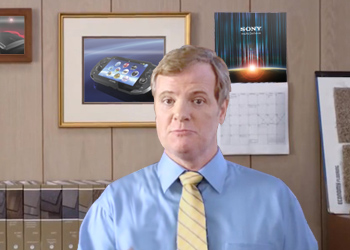 Lambert: I don't think I'm admitting anything shocking with that. Certainly we could have pressed forward with these plans for Europe and Japan, but the feeling was that the ruling in America would stimulate similar litigation in those territories as well, and that it was best to "go back to the drawing board," in a manner of speaking, and develop the current plan for backwards compatibility options on the PS3. Really, it was for the best. We were this close to deciding to remove PS2 compatibility entirely, and sell what we now call em-packs packaged with digital downloads of PS2 titles. That's a much more shocking thing to admit! Fortunately, the players spoke up, and we were forced to listen.
Lambert: I don't think I'm admitting anything shocking with that. Certainly we could have pressed forward with these plans for Europe and Japan, but the feeling was that the ruling in America would stimulate similar litigation in those territories as well, and that it was best to "go back to the drawing board," in a manner of speaking, and develop the current plan for backwards compatibility options on the PS3. Really, it was for the best. We were this close to deciding to remove PS2 compatibility entirely, and sell what we now call em-packs packaged with digital downloads of PS2 titles. That's a much more shocking thing to admit! Fortunately, the players spoke up, and we were forced to listen.
Gamepro: Yeah that doesn't sound like a very good idea at all.
Lambert: Well I can see the appeal of it, even from a customer's perspective. In fact, I headed the team that proposed it. After all, digitally downloaded software is ever-present, takes up no storage space, and is immediately accessible. We needed a less expensive PS3 model to send into the market, and to do that we had to reduce manufacturing costs. To do that, the extra PS2 compatibility hardware had to go. And there certainly was something to be said for ensuring that if a player had a Playstation 3, that their primary interest in the device was playing Playstation 3 software. I even believe that there are plenty of people out there who would happily pay a reduced cost for the original title for that convenience, even if they did already own the original release. And what about the people who missed the game the first time? So there are still a lot of questions. But in the end, even if the class action suit hadn't interrupted all those plans, I eventually concluded it was wrong-headed.
Gamepro: Why is that?
Lambert: Because a brand like Playstation, as big as it has become and as long as it has been the focus of my professional life, means nothing outside of the minds of its customers. The brand, by itself and disconnected from its past, becomes an abstract, simply a name for a product. When Coca-Cola changed their formula, they were still producing cola from very much the same ingredients for the same people, from the same people, but they had separated themselves from their history. And it is the history and consistency of a brand that forms lasting, loyal relationships with people. For us, at that time, Playstation 3 was our new flavor, our new product. And yet for us, unlike Coca-Cola, we also had the option to offer our new flavor in a product where someone could continue to enjoy the product they had come to enjoy, the brand they had come to trust. To them, that brand meant the entirety of the Playstation 2 and Playstation 1 library, the most diverse, highest quality library playable on a single console. To leave that behind would make us just another flavor on the shelf, regardless of what it was named. I learned a long time ago never to confuse your name with your brand. The ESA Class Action Suit only made that point even more clear.
Gamepro: But that wasn't the full extent of the original ruling…
Lambert: No. Not at all, unfortunately. Before we knew it we had our hands full of litigation for software that were in reality entirely different pieces of code, were highly developed and careful ports of titles from PS3 to PSP, designed to allow players to continue their game experience on the go. Suddenly one of the biggest features for the PSP, Game Continuity, had become a liability as well. Even Sony's movie division found itself defending itself against Class Action claims that selling a customer Blu-Ray if they had already bought DVD could be considered double-dipping.
Fortunately the early 2009 appeal established definitions to what could be considered "double-dipping," and the ruling only held true for emulated software that was the exact same code. Then of course the DCRCA spelled out these definitions explicitly and established the FTC as the regulatory agency with oversight in this area. The FTC recognized, although we would not charge again for the original game software code, it was perfectly fair practice to charge for the emulator software and instructions that allowed the old software to be run on the new hardware. And so we developed our PSP-to-Vita modew, like our PS2-toPS3 [model], based on that. On the PS3 we were able to move forward developing key titles for remastered HD rereleases, which is an initiative that turned out to be very welcome by our fans, and gave us some of our best-selling titles over the last two years.
But for us, for PSP, by that time a lot of momentum had been lost, because of the uncertain status of the ports. Nintendo introduced the Gameboy Cubed which, as you mentioned, offered native backwards compatibility with three previous Nintendo systems. And Apple and Microsoft introduced the iZune which, although short-lived, paved the way for Apple to enter the market with the iPhone, and finally the iPad. Don't get me wrong, there were some positives to the whole period of uncertainty. It focused us and our partners on developing experiences unique to the PSP and the portable environment, and this helped make our lineup distinct from Nintendo's handheld. This market is much more competitive now, but we feel with Playstation Vita we have something really special that will succeed on the merits of its unique features, and yet will continue to offer players the connection with the Playstation brand and library they've come to trust, through the Playstation Continuum feature.
Gamepro: Which is, in a way, Game Continuity version 2.0, right?
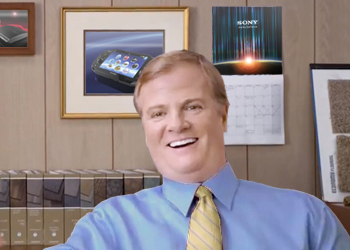 Lambert: I don't think that name does justice to the feature. Certainly, from a purely technical perspective, it looks very much the same. Players can start a game on the Playstation 3, transfer their save to their Playstation Vita, and pick up right where they left off with the portable version of the game, seamlessly. However with the power of the Vita the portable version of the game will provide an equal experience, with no notable step-down in graphics or gameplay quality, and in many cases additional touch screen and interface features that may inspire players to take their game to the Vita just for that experience. With the Vita's quick save and cloud save features available with PSN Platinum, the transition between console and handheld should be nearly seamless–we've moved beyond continuity to a true continuum of gameplay, at home or on the go. Finally, we have heard the concerns of our customers. And that's why we are working with our publishing partners to offer PS3 Vita Combo Packs SKUs on games that are being released with the Game Continuum feature, at an MSRP of $69.99 for both versions of the game in one box.
Lambert: I don't think that name does justice to the feature. Certainly, from a purely technical perspective, it looks very much the same. Players can start a game on the Playstation 3, transfer their save to their Playstation Vita, and pick up right where they left off with the portable version of the game, seamlessly. However with the power of the Vita the portable version of the game will provide an equal experience, with no notable step-down in graphics or gameplay quality, and in many cases additional touch screen and interface features that may inspire players to take their game to the Vita just for that experience. With the Vita's quick save and cloud save features available with PSN Platinum, the transition between console and handheld should be nearly seamless–we've moved beyond continuity to a true continuum of gameplay, at home or on the go. Finally, we have heard the concerns of our customers. And that's why we are working with our publishing partners to offer PS3 Vita Combo Packs SKUs on games that are being released with the Game Continuum feature, at an MSRP of $69.99 for both versions of the game in one box.
Gamepro: Are you going to offer each version of the game separately as well?
Lambert: We are, and yes, that will complicate matters a bit from a retail inventory standpoint. But even if the DCRCA doesn't mandate this, it's worth it to be able to offer the value to our most loyal and committed customers. It's turned out to be a fantastic success with encouraging sampling and adoption of the Blu-Ray movie format. Once again, [it's] a fine example of introducing your new flavor while ensuring your customers don't have to choose it over the taste they know they like.
Gamepro: When can we anticipate these Combo Packs to hit retail?
Lambert: Well we don't have any titles coming yet that highlight Game Continuum support, at least not in the launch window. We have some exciting news to announce at E3 this year, though, some make sure to watch for that.
Gamepro: I'm looking forward to it. Speaking of E3, are there any plans to announce a new home console, or perhaps a motion control solution as an answer to Nintendo's Wii or Microsoft's Kinect?
Lambert: I can confirm without a doubt that the answer is no to both questions. Both our rivals have done admirable jobs in implementing interesting new controls technologies into their consoles, and arguably Nintendo has done a lot to expand our industry's reach into households and the hands of people who have not traditionally viewed themselves as our customers. When they introduced this technology, they labeled it as disruptive, and at first, it certainly was. I would even go so far as to say that the initial sales of PS3, at it's initial price point, were disrupted by the launch of the Wii at around the same time. But I think that effect on gamers, on our core audience who do bear our brand in their minds, was short-lived. Their technology would actually prove to be more disruptive in the long term if we would have begin chasing them, trying to play catch-up with what they were offering. We've already taken enough steps down that road with SixAxis. Instead, moving forward, we remain committed to knowing the Playstation brand, and growing the Playstation brand, with the strengths that have made the Playstation brand great in the past.
That said, we spend a great deal of time and effort in research, developing new technologies. And if we do decide to fully explore new control methods, you can be sure we will do it with full commitment, integrated with a new platform. Dividing your market with peripherals has never turned out to be a successful strategy. I think, nearly three years after the introduction of Wii Motion Plus, if you could get Reggie Files-Aime to speak freely, he'd tell you the same thing.
Gamepro: So no new hardware to announce a E3 this year?
Lambert: It's not the year for hardware for us, no. I realize Nintendo will be hoping for a lot of "new toy" fascination with their Wao Wii tablet-controller console, but their first footsteps into the HD console market is the kind of game of catch-up I made clear we won't be playing. They're not coming from a position of strength, they're coming from declining sales. Microsoft, having taken the bait of disruptive technology, has split their player base, split their focus, and placed themselves in a position where announcing new hardware is only going to alienate the millions of players who have placed their faith in Kinect as Microsoft's new sub-platform. What Microsoft's players will expect is what we will deliver, tons of awesome software for the platform they have purchased. For us, we'll be coming into E3 hopefully fresh off the successful worldwide launch of Playstation Vita, with a solid established HD generation platform that is only now having its full potential approached.
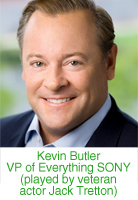 So what you can expect to see from us at E3 is games, lots and lots of awesome games, for Playstation 3, or for Playstation Vita, or for Playstation 3 and Vita, supporting Playstation Continuum. I can't really say anything about any of the titles, right now. But a diverse and vibrant software library is what players have come to expect from the Playstation brand, for the past 18 years. If we continue to remember that, then we will never fail to deliver on that, and our players can continue to trust in the fact that that is what we will give them.
So what you can expect to see from us at E3 is games, lots and lots of awesome games, for Playstation 3, or for Playstation Vita, or for Playstation 3 and Vita, supporting Playstation Continuum. I can't really say anything about any of the titles, right now. But a diverse and vibrant software library is what players have come to expect from the Playstation brand, for the past 18 years. If we continue to remember that, then we will never fail to deliver on that, and our players can continue to trust in the fact that that is what we will give them.
Gamepro: Anything at all you can reveal to us now, just to get all the Playstation fans excited?
Lambert: (laughs) I think, all I can tell you… is that certain Vice President will be rumored to be making an appearance.
Gamepro: Great! Thank you so much Mr. Lambert. It's truly been a pleasure talking with you today. Thank you for being so candid and real with me, I know our readers will really appreciate it.
Lambert: Thank you, I had a great time. Your readers are among our most loyal customers. It's the least I can do.
Read the prequel article: The 2nd Pillar – The Road Not Taken